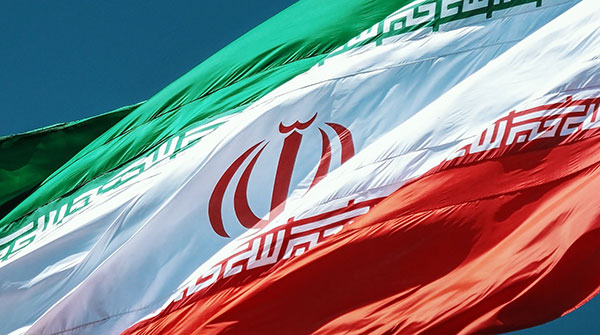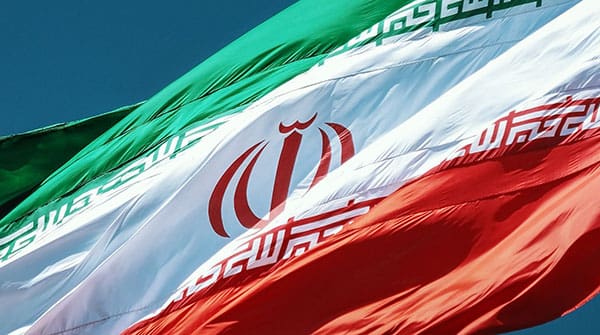Crude oil markets torn between rising Iranian oil exports and OPEC+ production cuts
 Crude oil markets are torn between two conflicting and contradictory plays. On one hand, is the growing Iranian and Venezuelan crude output, and on the other is the desire of the major players, Saudi Arabia and Russia, to cut output and put a floor beneath the oil market prices.
Crude oil markets are torn between two conflicting and contradictory plays. On one hand, is the growing Iranian and Venezuelan crude output, and on the other is the desire of the major players, Saudi Arabia and Russia, to cut output and put a floor beneath the oil market prices.
Interestingly, there is no convergence of interest between the two. One is targeting higher oil prices, while the other is striving to gain back its lost market share.
Data from various sources, including Kpler, SVB Energy International, FGE, and the International Energy Agency, indicates that Iran’s exports have surged to the highest level in nearly five years.
Its oil exports have hit a five-year high in recent months, courtesy of a $30 per barrel discount to its customers, the WSJ reported in early July. Iranian exports touched the 1.6 million barrels per day (bpd) mark in May and June. That’s more than twice the amount of oil sold during the same period last year, and it’s the highest volume of oil Iran has exported since the United States reimposed strict sanctions on the country in 2018.
It is also up significantly from 250,000 barrels in 2019 and 2020 after the U.S. opted out of the Iranian nuclear deal, the JCPOA, and imposed full sanctions on Tehran’s oil exports.
This is a cause of concern to major OPEC stakeholders. Julianne Geiger wrote for Oilprice.com that the increase in Iranian output poses a challenge to OPEC’s control over the oil market dynamics. “OPEC surely has some level of anxiety over the possibility that Iran’s oil will return to the market and disrupt the group’s influence over the oil markets,” Geiger underlined.
Iran’s production has been slowly increasing over the last two years, despite Western sanctions on its oil industry. Iran’s monthly production, as reported by OPEC’s secondary sources, averaged 2.679 million bpd in May 2023. According to OPEC data, this is an increase from the 2.544 million bpd that Iran produced in May 2022 and up from the average 2.455 million bpd Iran produced in May 2021. It’s an even more significant increase from May 2020, when Iran’s production was less than two million bpd at 1.978 million bpd.
Iran has used various means to export its oil and maintain market shares despite being sanctioned. Tehran blended Iranian refined oil into Iraqi oil for a short stint to evade sanctions, engaged in ship-to-ship transfers, and turned off AIS transponders to hide oil exports from tanker sleuths. And to some extent, now under sanction, Russia has been copying the Iranian methods to export its oil to customers.
Oil exports from another sanctioned country, Venezuela, also rose eight percent in June from the previous month to above 715,000 bpd. As per the data available, Venezuela’s oil exports have averaged 670,000 bpd in the first half of the year, almost 15 percent above the 585,000 bpd during the same period in 2022.
In the meantime, Nigeria, OPEC’s largest producer in Africa, is also targeting to increase its oil production to up to 1.7 million bpd by November 2023 from the current 1.5 million bpd, Gabriel Tanimu Aduda, Permanent Secretary at Nigeria’s Ministry of Petroleum Resources, told Energy Intelligence on the sidelines of the OPEC+ seminar in Vienna last week.
The surge comes as Saudi Arabia, Russia, and other OPEC+ producers take major steps to dial back oil production, with Saudi Arabia extending its one million barrel-a-day production cut through August and Russia vowing to slash its oil production by another half million bpd in the coming months.
This is troublesome for the major oil producers, who appear determined to take back control of the oil markets. The output rise from other OPEC members is detrimental to their efforts. When the Iranian Oil Minister Javad Owji and his Saudi Arabia counterpart Prince Abdulaziz bin Salman met on the sidelines of the OPEC conference in Vienna last Wednesday, this must have been on their minds.
Toronto-based Rashid Husain Syed is a respected energy and political analyst. The Middle East is his area of focus. As well as writing for major local and global newspapers, Rashid is also a regular speaker at major international conferences. He has provided his perspective on global energy issues to the Department of Energy in Washington and the International Energy Agency in Paris.
For interview requests, click here.
The opinions expressed by our columnists and contributors are theirs alone and do not inherently or expressly reflect the views of our publication.
© Troy Media
Troy Media is an editorial content provider to media outlets and its own hosted community news outlets across Canada.


